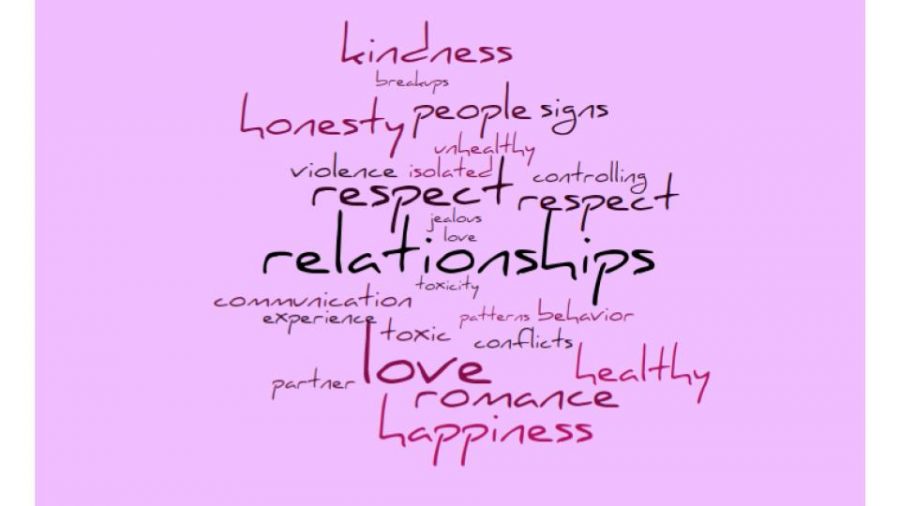Valentine’s Day emphasizes healthy teen relationships
January 25, 2021
With Valentine’s Day, and every day, it’s important to talk about the difference between healthy and unhealthy relationships. Violence in relationships is a wide-spread issue. From married adults to high school, or even middle school-aged kids, this violence is physical, verbal, or sexual.
According to data from the CDC – Youth Risk Behavior Surveillance — United States, 2013.10.3% of people in high school relationships experienced physical violence in their relationship, and 10.4% experienced sexual violence. Sadly, many young people are afraid to come forward about their abuse, so these numbers could be much higher.
With high school relationships also comes high school drama. Teenage romance and conflicts can cause issues like patterns of cheating, friend conflicts in the relationships, or messy breakups.
Healthy relationships come from experience. A lot of young people don’t know what red flags to look for or signs of toxicity. In my past relationship I was unaware of the red flags and how to identify them, which only led to me being caught in a toxic cycle with that person. Who hasn’t looked back at a broken relationship and seen that the signs were there all along?
According to Break the Cycle, a website with information to help people in difficult relationships, some warning signs could be extreme jealousy, constant checking of cell phones, or explosive temper.
With young, immature, and jealous people, there is a lot of room for disaster. No matter the age, people who don’t know how to have healthy communication are often more angry, due to the bottled up emotions. In high school relationships, healthy communication is needed. Otherwise people are going to get hurt.
It can sometimes be difficult to identify when you’re in a toxic or controlling situation, but it is always a good idea to set boundaries in new relationships and make sure your partner respects them. In healthy relationships, there is equal respect from each person and open, honest communication. It’s very important to know what you want from a partner and how you want to be treated.
So, why don’t victims reach out? A lot of teens don’t want to believe they are not being treated right. They want to think their relationship is perfect and going well. Most teens don’t realize their relationship is toxic until it’s over. Students are also not taught about these signs and red flags to look for. Teachers might go over the topic briefly in health class, but students need to hear these messages over and over again. After ninth grade, when a student may not be in a relationship, the messages get lost.
Victims of these relationships can also be too scared to reach out. When in these relationships, victims are often isolated by their abuser, which can cause fear of being alone , or having “no one” without that person. They are also manipulated into believing that the abuse is all out of love. This leads many victims to stay with these harmful people until it is too late.
If you find yourself in a toxic or controlling relationship, it is important to reach out for help, whether it’s by talking to a parent or guidance counselor. Always remember that there are people trained to help you identify unhealthy behaviors and give you the support you need to get out of these situations.
National domestic Violence hotline: 1-800-799-7233
Break The Cycle: (1)866-331-9474 or text “love is” to 225-22.
National Dating Abuse Helpline: 1-866-331-9474.



